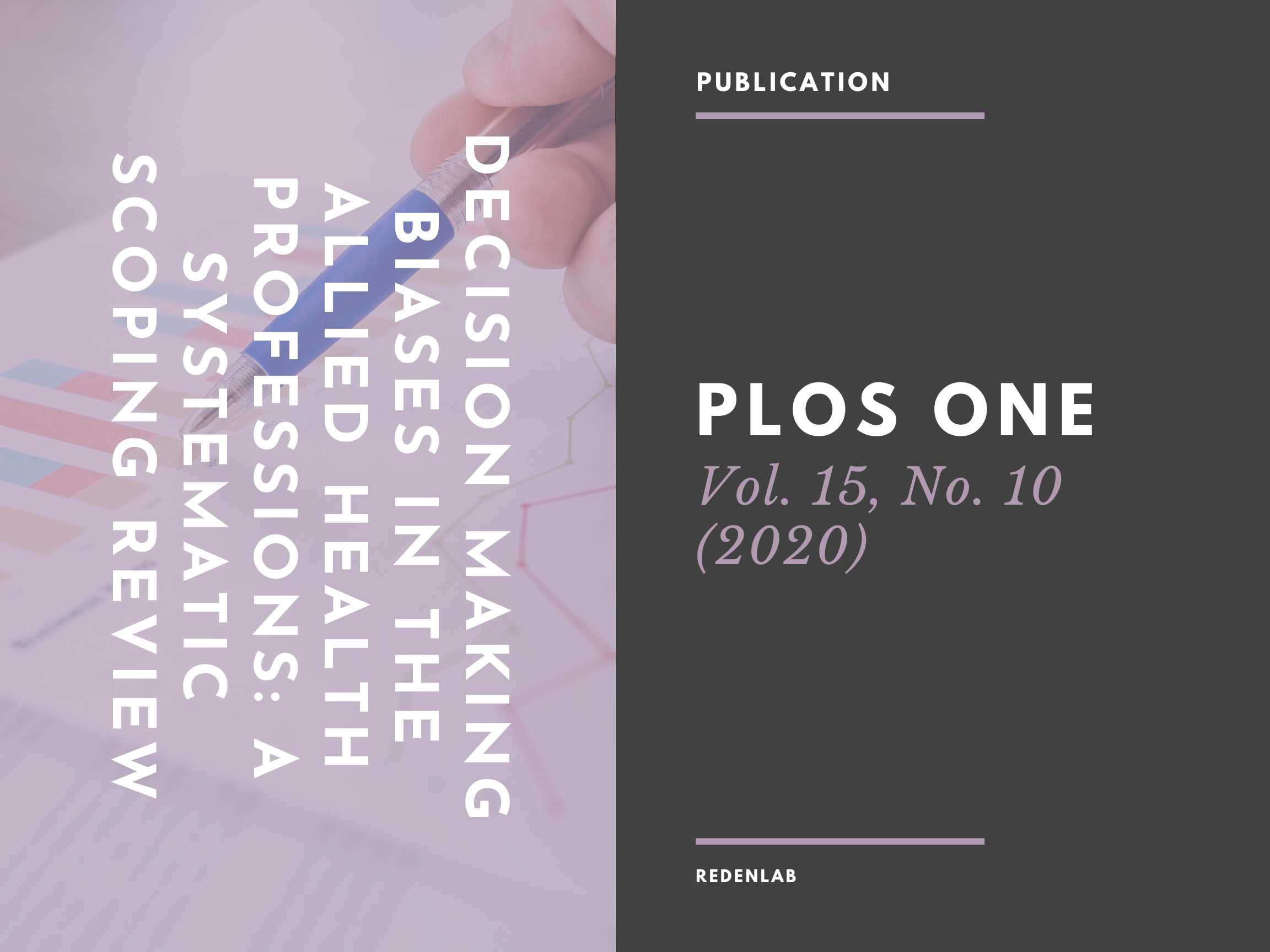Decision making biases in the allied health professions: A systematic scoping review

Abstract
Objectives
Cognitive and other biases can influence the quality of healthcare decision making. While substantial research has explored how biases can lead to diagnostic or other errors in medicine, fewer studies have examined how they impact the decision making of other healthcare professionals. This scoping review aimed to identify and synthesise a broad range of research investigating whether decisions made by allied health professionals are influenced by cognitive, affective or other biases.
Materials and methods
A systematic literature search was conducted in five electronic databases. Title, abstract and full text screening was undertaken in duplicate, using prespecified eligibility criteria designed to identify studies attempting to demonstrate the presence of bias when allied healthcare professionals make decisions. A narrative synthesis was undertaken, focussing on the type of allied health profession, type of decision, and type of bias reported within the included studies.
Results
The search strategy identified 149 studies. Of these, 119 studies came from the field of psychology, with substantially fewer from social work, physical and occupational therapy, speech pathology, audiology and genetic counselling. Diagnostic and assessment decisions were the most common decision types, with fewer studies assessing treatment, prognostic or other clinical decisions. Studies investigated the presence of over 30 cognitive, affective and other decision making biases, including stereotyping biases, anchoring, and confirmation bias. Overall, 77% of the studies reported at least one outcome that represented the presence of a bias.
Conclusion
This scoping review provides an overview of studies investigating whether decisions made by allied health professionals are influenced by cognitive, affective or other biases. Biases have the potential to seriously impact the quality, consistency and accuracy of decision making in allied health practice. The findings highlight a need for further research particularly in professional disciplines outside of psychology, using methods that reflect real life healthcare decision making.
Click here for more details
